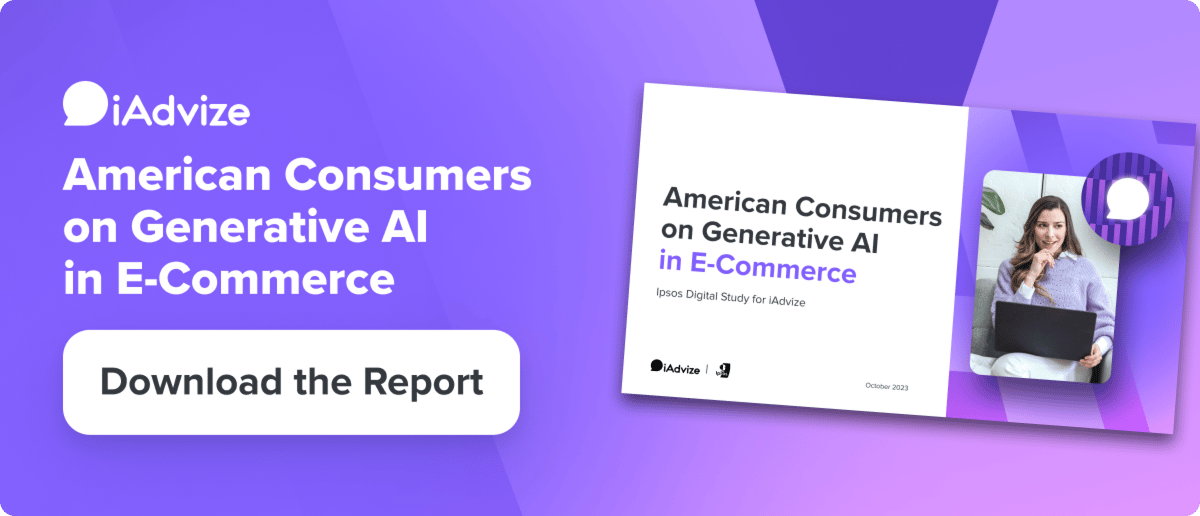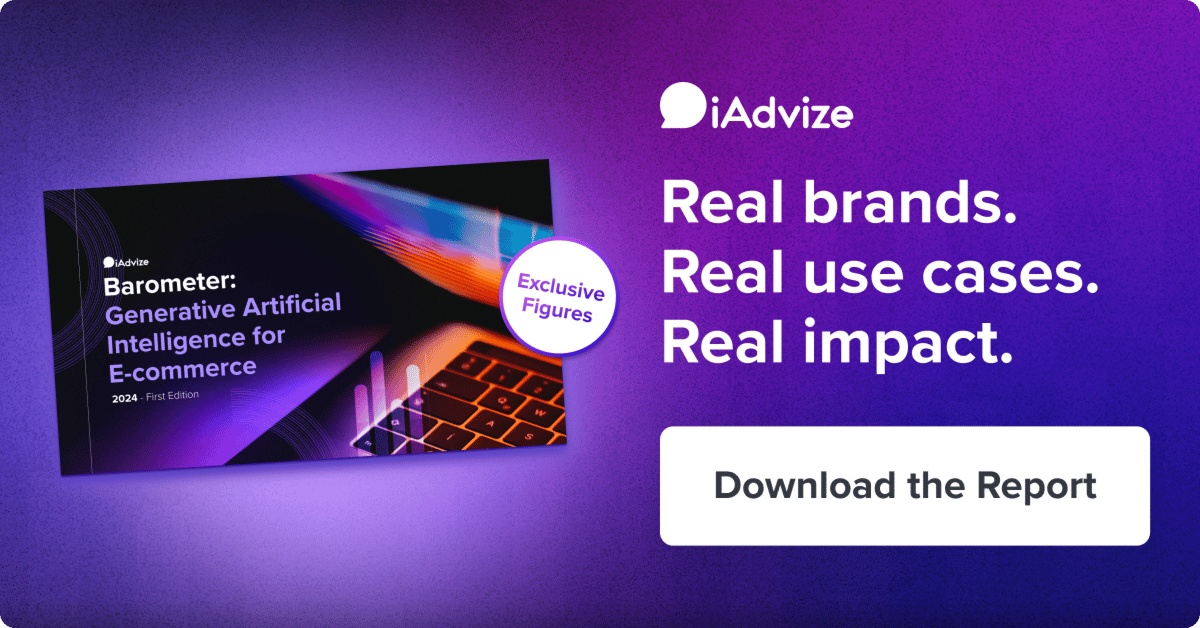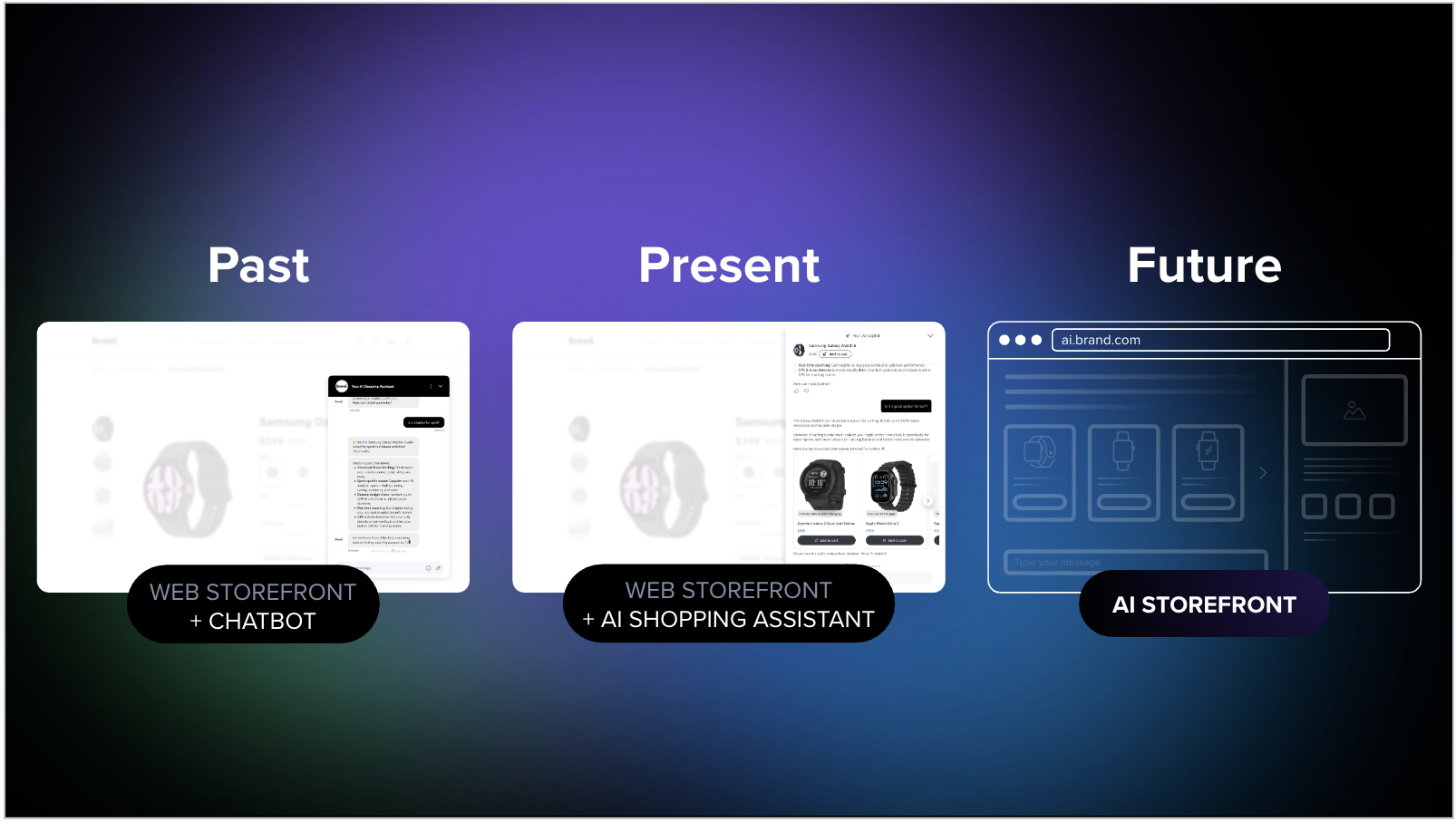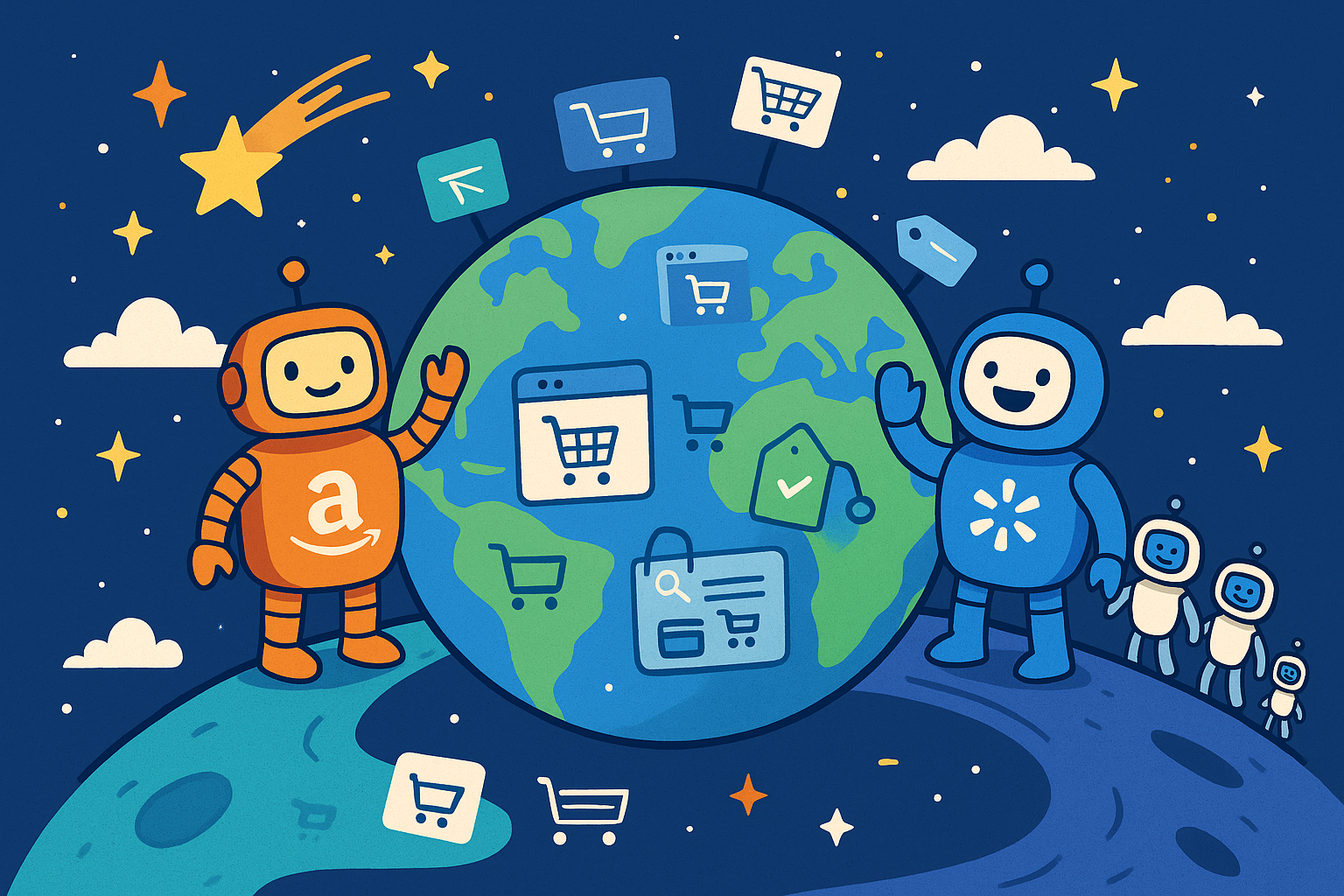30 Online Shopping Statistics to Know in 2024
iAdvize

The generative AI wave hasn't yet passed you by. Tech giants like Google, Bing, and Amazon have rapidly embraced this groundbreaking technology over the past year. The digital landscape has been effectively transformed with ChatGPT’s debut at the end of 2022, as this virtual assistant demonstrated its advanced ability to converse in natural language with online shoppers. While particularly effective for administrative and marketing tasks, the potential usefulness for e-commerce is equally significant.
Studies have illuminated the impact of generative AI, focusing on its adoption by professionals and many shoppers in the United States. This article revisits the key takeaways uncovered in reports to share online shopping statistics that are important to know before implementing AI into your e-commerce strategy.
Nearly 3 out of 4 Americans (73%) shop online several times a month.
The e-commerce sector experienced massive growth in 2023. According to Forbes:
- E-commerce sales are forecasted to grow by 8.8% in 2024, with the global e-commerce market projected to total $6.3 trillion by the end of the year.
- 20% of retail purchases are expected to happen online in 2024, and by 2027, this number is projected to reach 23%.
These online shopping statistics confirm the growing place digital platforms have in our daily lives. The survey we conducted with Ipsos reveals that this trend can be explained by several factors:
- Value is increasingly being placed on convenience. 71% of American consumers cite convenience as being their top reason for shopping online.
- 50% of shoppers prefer online over in-store due to more competitive prices, highlighting the importance of an effective omnichannel e-commerce strategy to meet customer preferences across both online and physical platforms.
- Many shoppers want more options. 37% highlight access to a wide range of products as being their main reason for buying online.
E-commerce is booming, so much so that it’s now more important than ever for every online business to be offering potential buyers a frictionless shopping experience.
Only 55% of online shoppers say they are very satisfied with their experience.
Online shopping statistics are showing that the customer experience consumers expect doesn’t quite match what’s being offered today. This relatively low satisfaction rate can largely be attributed to the difficulties encountered during the purchasing process from a brand.
Buyers prioritize personalization above everything else. However, while e-commerce excels at attracting a wide audience, it often provides a highly standardized and minimally personalized experience, leading to a disappointing user experience.
When visitors use the search bar on an online shopping site, they find themselves without any guidance, and getting the information they're looking for can become a challenging task.
- 7 out of 10 shoppers use the search bar on an e-commerce website, but 80% leave after doing so.
50% of Americans don’t make a purchase due to a lack of product information.
Another aspect found from these online shopping statistics that may discourage shoppers is the lack of accuracy and detail in product information. Despite rich FAQs, only 13% of customers are able to find answers to their questions without help.
You can solve this problem by reinventing your engagement strategies. Personalized interactions play a crucial role in converting more consumers. Implementing a proactive conversational commerce strategy with product recommendations and expert advice tailored to each customer will help an online business bridge the gap between expectations and the actual buying journey.
90% of Americans prefer to contact a brand they’re shopping with via online chat or messaging.
Online shopping statistics are showing that messaging is key to building strong and profitable customer relationships and boosting transactions. Proof of this is that chat has become the top preferred communication channel for Americans.
- This figure jumps to 94% among 18-34 year olds. (Ipsos x iAdvize study, 2023)
Despite the widespread preference for messaging, it’s important to note that many online shoppers don’t know about the various potential uses of messaging tools like AI chatbots in their pre-sales experience.
- Only 21% of online shoppers believe that a chatbot can provide specific advice.
- 19% know it can provide access to detailed product information.
- 9% view chatbots as a source of inspiration for good ideas.
What’s an AI chatbot?
If consumers haven't yet gotten into the habit of using them while online shopping, this might be due to confusion between older-generation chatbots (NLU), which are less useful and reliable, and the generative AI-powered virtual assistants that are used on many e-commerce sites today.
Generative AI chatbots can now effectively manage conversations with online shoppers, over desktop or mobile. They function as assistants throughout the entire buying journey, providing instant, accurate responses to questions.
74% of Americans want generative Al to help them get detailed information on the products they're interested in.
Despite generative AI’s usefulness for consumers and businesses alike, its reliability and security are still major concerns.
- 31% of online shoppers worry about the protection of their data when using a chatbot.
When it comes to ensuring the ethical use of AI, every brand and retailer is particularly focused on two areas:
- For 47%, adherence to data privacy laws and regulations (Generative AI Trends in Retail and Ecommerce).
- For 46%, validating AI-generated content to prevent wrong or misleading information (Generative AI Trends in Retail and Ecommerce).
These important online shopping statistics are why software developers must focus on designing trustworthy generative AI models that, unlike ChatGPT, are suited for use in business. There are solutions like this out there—that ensure data privacy and the reliability of the AI assistants’ responses through customized safeguards and continuous optimization.
59% of companies have already integrated generative AI into at least some areas of their operations.
- In July 2023, Gartner found that 79% of decision-makers stated that technologies like artificial intelligence would be essential to their success in the next two years.
- Additionally, 98% of them agree or strongly agree that generative AI significantly improves the efficiency of their operations.
- Meanwhile, 34% plan to increase their investment in this area over the next five years.
The integration of this technology brings tangible benefits for customer service efficiency, which explains its rapid adoption across a wide range of industries. By turning to generative AI, an online business can not only improve their internal operations, but also provide more personalized and effective interactions to their online shoppers.
By the end of 2023, 70% of online conversations were partially or fully automated by AI.
- With e-commerce conversion rates averaging 14.2% (up to 33% for some brands) post-conversation with an AI based chatbot, it's clear that this technology can generate great results for online businesses.
- E-commerce merchants can expect an increase in their revenue by an average of 6% to 10% after deploying AI on their site, according to a Statista report.
- Furthermore, it's estimated that generative AI solutions could increase team productivity by 1.5 points over the next decade by automating their workload.
The key takeaways of these online shopping statistics are that integrating AI into your e-commerce engagement strategy offers considerable advantages to companies, helping them remain competitive in an ever-evolving digital landscape.
The top industries leading the charge in generative AI adoption include consumer electronics (23.5%), fashion (21.6%), and sports & outdoors (9.8%).
Since its launch, our iAdvize Copilot™ solution has been adopted by over 100 brands, including GetFPV, INTERSPORT, IKKS, and Sideshow. It’s increasingly attracting retailers across all industries to alleviate areas of friction in the online buying journey.
Take fashion for example. This sector faces two main challenges:
- Reduce the return rate by providing personalized advice and clothing recommendations 24/7.
- Better manage site traffic during peak sales periods, like Black Friday and Cyber Monday.
→ Check out this infographic on the key generative AI in e-commerce figures for fashion in 2024 in order to get other online shopping statistics.
According to McKinsey, this technology could add between $150 to $275 billion in profits to apparel, fashion, and luxury over the next three to five years.
2024 online shopping statistics show us that generative AI chatbots are redefining the e-commerce experience.
The emergence of AI represents a significant milestone in the evolution of chatbots and the transformation of online commerce. The data and online shopping statistics highlighted in this article underscores the impact of this technological breakthrough on the global chatbot market and consumer shopping behavior across all platforms.
With the e-commerce industry expanding, the natural conclusion is that generative AI is key to addressing persistent challenges in e-commerce, like customizing the buying journey and scaling efficient pre-sales assistance for users. Nevertheless, its widespread adoption by businesses and customers faces obstacles, particularly when it comes to security and reliability. With new data laws and regulations like the AI Act, CCPA, and GDPR, it’s more important than ever to turn to Trusted Generative AI.

.png)
.png)







